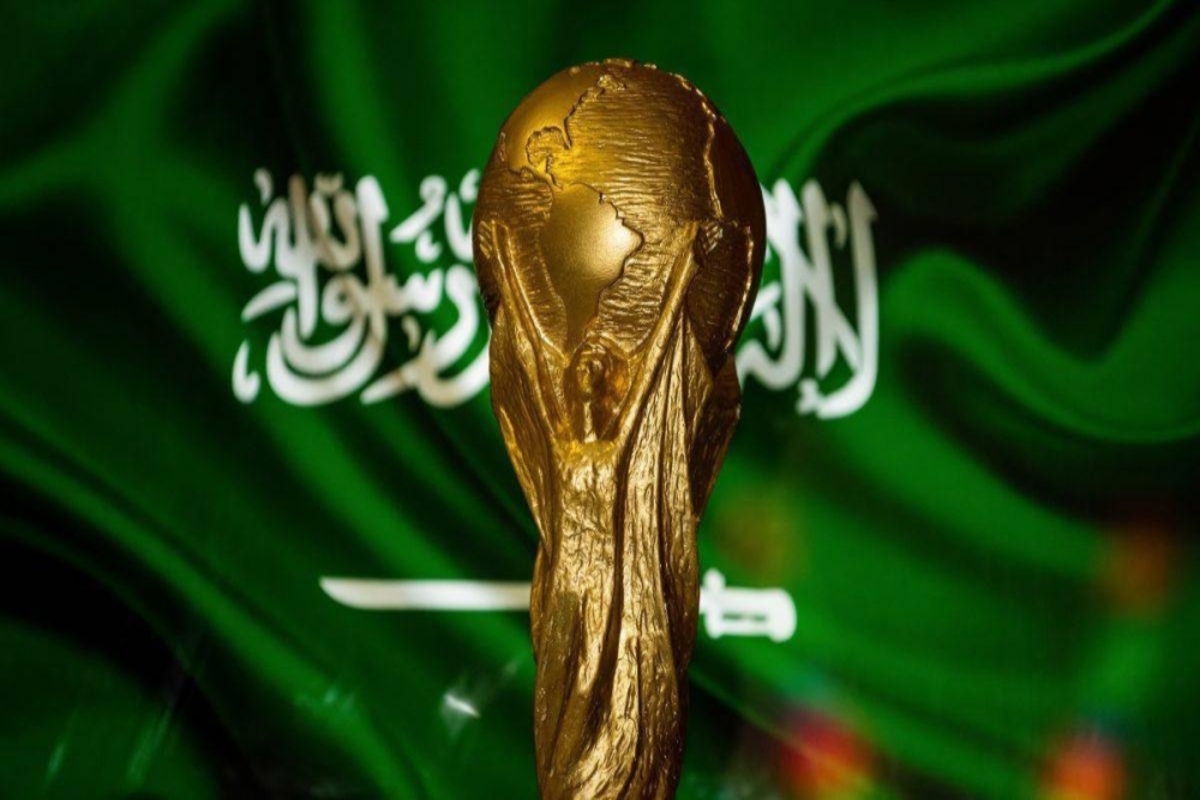On the 31st of October, FIFA announced that Saudi Arabia had become the sole bidder of the 2034 World Cup. The decision certainly does not come as a surprise. FIFA has regularly been criticized for bribery scandals and its nonchalance in sponsoring World Cups in states with poor human rights standards (Russia, China, Qatar).
Nonetheless, the most authoritative football federation’s official stance is to ensure complete respect for human rights in the preparation process for the World Cup. Arguably, it does so by referring to Article 7 of the FIFA Human Rights Policy and underlining its adherence to the Guiding Principles on Business and Human Rights. However, doubts can be raised on how binding these instruments are since neither Qatar nor FIFA compensated the families for the deaths and injuries of migrant workers during Qatar’s turn at hosting the prestigious sporting event.
The founding issues in accepting a bid for a World Cup from a country from the Arab Gulf, like Qatar or Saudi Arabia, are plenty. In an attempt to clarify the situation, these issues can be divided into three categories: 1) The poor human rights standards of these states (inclusiveness, freedom of expression, political repression); 2) accepting the rights of workers at stake considering that the kafala system is inherently abusive: and3) allowing these countries to fulfil the strategy of ”sports whitewashing” to deflect from their poor human rights standards. Considering that the first and third issues are founded on the national strategies of these states, FIFA and other stakeholders usually appease them by accepting significant sums of money. However, reluctantly accepting that these two issues fall under ”state decisions,” it is unacceptable that FIFA becomes actively responsible for the deaths of thousands of workers.
This topic was particularly pressing for the last World Cup in Qatar. In this instance, migrant workers were hired for the construction of hotels and stadiums and were subjected to various human rights abuses. The first topic was how the workers were hired under the kafala sponsorship system. The system is a sponsorship by the employer, who will cover his employees’ travel expenses and accommodation. The issue with this system lies in its deregulation. In the case of Qatar, workers had no protection under labour law, which granted the kafeel (employer) the ability to exploit workers on different levels. Some examples are extra hours of work, blackmailing migrant workers on the outcome of their visa, and denying the possibility to cease the contract of employment. The second issue, inherently connected with the first, is the working conditions migrant workers must bear. A 2021 Human Rights Watch (HRW) report showed that a hazard for workers in Qatar was extreme heat exposure, which causes health complications.
Considering this information and ascertaining that Qatar and Saudi Arabia share political and legal similarities, it is possible to foresee the human rights violations of the 2034 World Cup. Saudi Arabia holds a Kafala system similar to that in place in Qatar, although they ostensibly reformed it in March 2021. However, HRW highlighted how the labour reforms did not uphold human rights standards. The reform allows workers to request an exit permit (document granting authorization to leave the country) without the employers’ permission. Even with this, exiting a country is a freedom rather than a procedure that needs to be accepted by third parties. Michael Page, Middle East Director of HRW, describes the Saudi Arabian kafala as the most abusive system in the region. Common violations are confiscation of passports, delayed wages and forced labour. In addition, the employers are still responsible for renewing the work permits, and – as happened in Qatar – workers often suffer the consequences of possibly being undocumented. Considering these aspects, the 2021 reforms of the kafala system by Saudi Arabia need to be revised, bearing in mind that it remains to be seen what criteria the ministry would use in accepting workers’ exit requests.
Furthermore, Saudi Arabia lies in the same geographic area as Qatar; in summer, it reaches 40 degrees Celsius and beyond. Considering these circumstances, the regulations should follow Wet Bulb Globe Temperature, which prohibits working beyond 31.2 Celsius. However, the fact that the labour union cannot monitor the kafala agreements will likely cause a repetition of the human rights issues in Qatar.
Considering this situation, particular attention is necessary to monitor the status of human rights for workers in Saudi Arabia in the future. FIFA’s bidding documents show that 14 stadiums are needed to be built to host the World Cup. To do so, 13.4 million migrant workers are expected to work on low-wage services and few human rights protections. As a result, it appears that FIFA has decided again to accomplish human rights abuses will likely lead to a new inescapable tragedy with no accountability.





